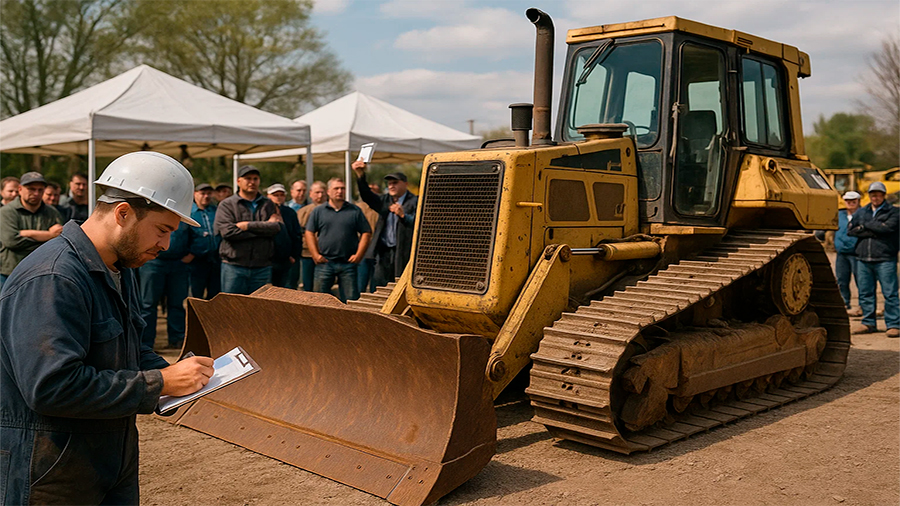Government Asset Auctions: How to Buy Property and Equipment
Across many countries, governments sell off surplus property, seized assets, and equipment through public auctions. These auctions present opportunities for individuals and businesses to acquire assets at potentially lower prices than traditional markets. From real estate to vehicles, office furniture, or industrial machinery, the variety is wide. Yet participating successfully requires more than showing up and bidding. Understanding how auctions are structured, what rules apply, and how to prepare financially can make the difference between a bargain and a costly mistake. Government auctions may be open to anyone, but knowledge determines who benefits most.
Why Governments Sell Assets Through Auctions
Public auctions serve multiple purposes. Governments liquidate assets that are no longer needed, such as outdated office equipment, land, or vehicles. Auctions are also used to dispose of property seized through tax delinquency, customs violations, or criminal proceedings. Selling through auctions ensures transparency: all interested buyers compete under the same conditions, and proceeds often go back into public budgets. For citizens and companies, these events create a chance to acquire property without dealing with inflated commercial prices. However, this opportunity comes with risks: the condition of items may vary, and warranties are often absent. Buyers must weigh savings against uncertainty before bidding.
Transparency and Efficiency
Auctions are designed to prevent favoritism, offering equal access. This makes them different from private sales, where negotiations may favor insiders.
Types of Assets Commonly Found in Auctions
The variety of assets available at government auctions is broader than many expect. Real estate makes up a large portion—houses, apartments, or commercial buildings repossessed due to unpaid taxes or seized through legal disputes. Vehicles are also common, ranging from cars to trucks, buses, and even specialized equipment. For businesses, auctions can provide industrial machinery, construction tools, or IT equipment at discounted rates. Office furniture, electronics, and surplus supplies often appeal to small businesses seeking to reduce costs. Each asset category carries different risks, from hidden damage to legal complications. Careful inspection and research remain essential for every purchase.

Common Categories in Government Auctions
| Category | Examples | Potential Risks |
|---|---|---|
| Real Estate | Homes, land, commercial property | Unclear ownership, unpaid taxes |
| Vehicles | Cars, trucks, buses, specialized fleets | Mechanical problems, no warranties |
| Equipment | Industrial machines, IT systems, tools | Obsolete models, wear and tear |
| Office Assets | Furniture, electronics, surplus stock | Condition unknown, limited resale value |
How the Auction Process Works
Government auctions are typically advertised on official websites or local notices. Interested participants register in advance, often providing identification and sometimes a deposit. Auctions may be held in person or online, with bidding conducted in real time. Assets are sold “as-is,” meaning the buyer accepts the condition without warranties. Payment deadlines are usually strict—sometimes within days. Successful bidders must also comply with transfer procedures, such as registering real estate titles or vehicle ownership. Failing to complete payments or paperwork can result in forfeiting deposits. Understanding the process step by step reduces risks and prevents costly mistakes during participation.
Registration and Deposits
Most auctions require a deposit as proof of seriousness. This deposit may be refundable if bidding is unsuccessful.
Strategies for Preparing to Bid
Preparation is critical. Buyers should start by researching available assets before the auction begins. Many governments provide catalogs or inspection opportunities. Visiting assets in person, if possible, helps assess condition. Setting a maximum budget prevents overbidding during the heat of competition. For real estate, checking legal status and outstanding debts ensures no surprises later. For equipment or vehicles, hiring a mechanic or expert to evaluate condition may save money in the long term. Bidding strategies also matter: entering aggressively can inflate prices, while patience sometimes secures better deals. Planning ahead makes the difference between success and regret.
Inspection Matters
Auction descriptions can be limited. Physical inspections reveal issues that photos or documents may miss, such as hidden damage or missing parts.
Opportunities and Risks in Government Auctions
Government auctions can deliver excellent value, but they also carry risks. The opportunity lies in affordability: many assets sell for below market value. Businesses often use auctions to acquire property or equipment at lower costs, improving margins. However, the risks include incomplete information, assets sold with legal encumbrances, or items requiring costly repairs. Buyers must also remember that competition can inflate prices, reducing savings. Successful participants combine optimism with caution—researching, budgeting, and inspecting. Viewing auctions as investments rather than quick wins helps maintain perspective and protect against unnecessary losses.
Balancing Opportunities and Risks
| Opportunity | Benefit | Risk |
|---|---|---|
| Low prices | Assets often cheaper than market value | Condition may require repair |
| Transparency | Equal access to all bidders | Competition can inflate prices |
| Diverse assets | Wide range of property and equipment | Unclear legal histories |
| Quick process | Fast acquisition | Strict deadlines for payment |
Narrative Example: A Small Business at Auction
Imagine a small construction company looking for machinery. Buying new equipment is too expensive, so they turn to a government auction. After researching the catalog, they identify a bulldozer seized from a bankrupt contractor. Before bidding, they send a mechanic to inspect it, who finds minor but manageable repairs are needed. On auction day, competition is modest, and the company secures the bulldozer for half the retail price. Repairs cost less than expected, and within weeks, the bulldozer is operational. For the business, the auction turned into an affordable growth opportunity—but only because preparation and caution were applied.
The Lesson
Success stories at auctions rarely happen by luck. They result from research, inspection, and disciplined bidding.
Forward-Looking Perspective
Government auctions are evolving. Digital platforms increasingly replace traditional halls, making participation easier for citizens and companies across regions. This shift expands access but also increases competition. Transparency is enhanced by online catalogs, photographs, and digital bidding records. At the same time, risks rise: cyber fraud and fake listings require vigilance. Some governments are experimenting with blockchain systems to secure auction records, while others integrate AI tools to match buyers with suitable assets. For participants, the future means more convenience but also greater responsibility to stay informed and cautious. Technology will not eliminate risks, but it may reduce them.
The Future Buyer
Tomorrow’s successful bidders will be those who combine digital literacy with traditional caution—using new tools but keeping old disciplines.
Conclusion
Government asset auctions provide affordable opportunities to buy property and equipment, but they are not risk-free. They require preparation, discipline, and clear strategies. From understanding why governments sell assets to learning how bidding works, buyers benefit most when they research carefully and plan ahead. Tables of risks and opportunities show that savings are possible, but only with awareness of pitfalls. Narrative examples highlight how preparation turns chances into success. Looking forward, technology will reshape auctions, broadening access but demanding new forms of vigilance. For citizens and businesses alike, auctions remain both an opportunity and a challenge worth mastering.






 Daniel Reed is the founder and chief editor of MYA App. With more than 12 years of experience in finance, economics, and digital markets, Daniel brings a unique perspective to complex topics such as credit risks, global auctions, and investment strategies.
Daniel Reed is the founder and chief editor of MYA App. With more than 12 years of experience in finance, economics, and digital markets, Daniel brings a unique perspective to complex topics such as credit risks, global auctions, and investment strategies.